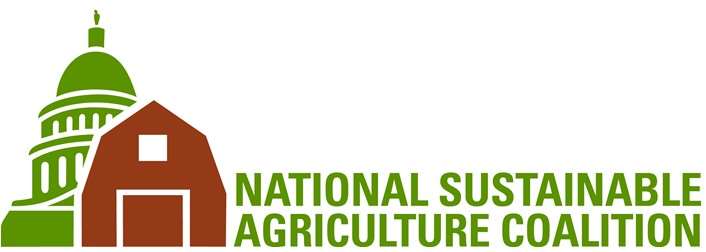
Farmers, ranchers, and foresters who use voluntary conservation programs to increase resilience and enhance natural resources on and around their operations should be pleased with the fiscal year (FY) 2018 bill released today by the House Agriculture Appropriations Subcommittee. The bill leaves intact mandatory farm bill funding for both the Conservation Stewardship Program (CSP) and Environmental Quality Incentives Program (EQIP), USDA’s most heavily used working lands conservation programs. The Subcommittee bill also rejects the President’s call to slash the discretionary conservation operations budget, which USDA uses to help producers write and implement conservation plans.
“These programs help producers increase soil health, protect water quality, and remain viable through persistent drought," said Greg Fogel, National Sustainable Agriculture Coalition (NSAC) Policy Director. "They are also oversubscribed year over year – meaning that USDA routinely turns away qualified farmers because demand for conservation support is so strong. We commend the Subcommittee for recognizing the value of these resources and protecting funding for CSP and EQIP in the FY 2018 funding bill.”
“Unfortunately, however, the Subcommittee bill fails to acknowledge the important role that farm loan and rural development programs play for producers and rural communities,” Fogel said. “We are disappointed that the bill includes major cuts to Farm Service Agency direct and guaranteed loan programs at a time when demand for those loans is at its highest. The persistent downturn in the farm economy has meant that more farmers are struggling to secure credit from banks, and therefore are turning to FSA loan programs for assistance. Our nation’s farmers and ranchers need access to credit to start new and sustain their existing businesses, but often cannot access these resources through the commercial market. It is in our best interest as a nation to close the farm lending gap; NSAC believes that Congress should do this by supporting FSA with the funding it needs to operate effectively.”
The bill also makes deep cuts to a number of rural development programs, including a 33 percent cut to the Value Added Producer Grants (VAPG) program, a 9 percent cut to the Appropriate Technology Transfer for Rural Areas (ATTRA) program, and a staggering 82 percent cut to the Rural Energy for America Program (REAP). In the weeks ahead, NSAC will work with our members, allies, and congressional appropriators to reverse these harmful cuts.
Because the Subcommittee has not yet released the report accompanying its funding bill, we cannot yet comment on the status of funding for the Sustainable Agriculture Research and Education (SARE) program and other USDA research and extension programs.
Source: National Sustainable Agriculture Coalition